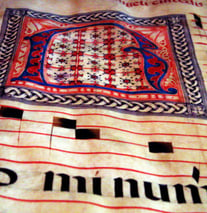 Daily Scripture Reflection
Daily Scripture Reflection
Scripture: Lectionary 330. Feb.12. Genesis 1:20-2:4. Psalm 8:4-5,6-7,8-9. Mark 7:1-13
The continuation of the Priestly Narrative of creation will end today. The second narrative is from the perspective of the Yahwist Tradition which is older and more a popular rendition of creation. It starts with Genesis 2: 4 and ends with chapter 3. Today we learn of the powerful creative love of God for Adam and Eve or man and woman who are created in the image and likeness of God. This marvelous work is completed and God is said to rest on the seventh day, the Sabbath. The liturgical dimension of the Priestly Narrative helps us to worship and praise God because of the magnanimous goodness of each phase of creation; our being created in God’s image and likeness gives us great motivation to become creative agents of God’s goodness in our world today. This is not a scientific report but a liturgical, theological, and poetic rendering of creation and our call to cooperate with God in preserving, continuing, and cherishing what creation has done for all who have been placed on planet Earth.
Psalm 8 displays how those who understood this creation narrative praise God and express wonder, excitement, and love for all that God did with such goodness and beauty in this cosmological narrative. One of the verses of this Psalm 8 was radioed back to Earth when the first man landed on the moon. This was a great response from us humans to the wonder of God’s creation. It had the same importance for us that this psalm did for those who praised and worshipped God because of the splendid wonders of creation.
In the Gospel we enter a unique chapter in Mark where the traditions of ablutions and the washings of materials used for meals. Jesus is faithful to the Torah in all of its pristine meanings. We have to remember that there are many diverse schools of thought in the first century. Most recently, in a monumental study called the “Marginal Jew” Fr. John Meier of Notre Dame in his fourth volume on “Rethinking the Historical Jesus” concentrates on this point and this passage to show how Jesus was not contradicting the law nor the Law (Torah as revelation, teaching, etc.). The section dealing with this topic is called Law and Love. We also keep in mind that Mark is speaking through the narrative that is his about this particular ritual of washing. He explains it quite clearly for the readers of his church or assembly of believers. Jesus is refuting human traditions and interpretations not the divine lawgiver who has given us the Torah (the Old Testament or more specifically the Pentateuch or first five books of the Bible). The revelatory messages of God in the Torah are life-giving and are immersed in God’s love for God’s chosen people. This includes us! Amen.
Copyright 2013 Fr. Bertrand Buby, S.M.
About the Author

Guest
We welcome guest contributors who graciously volunteer their writing for our readers. Please support our guest writers by visiting their sites, purchasing their work, and leaving comments to thank them for sharing their gifts here on CatholicMom.com. To inquire about serving as a guest contributor, contact editor@CatholicMom.com.


.png?width=1806&height=731&name=CatholicMom_hcfm_logo1_pos_871c_2728c%20(002).png)
Comments